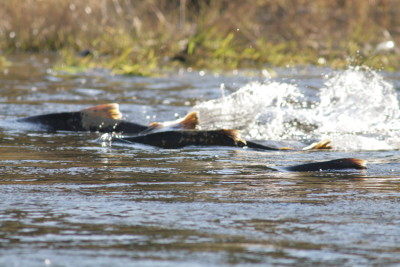A recent controversial decision to open select scallop grounds off the coast of New England to certain select fishing groups undermines sustainable scallop management, and threatens the future health of one of the region’s most valuable resources.
On Dec. 3, the New England Fishery Management Council allotted one component of the fishing fleet 300,000 pounds of scallops for harvest from an area of the Atlantic known as Nantucket Lightship. Proposed by council member and Cape Cod Commercial Fishermen's Alliance CEO John Pappalardo, this allotment would open Nantucket Lightship too early, and goes against the principles that have made scallop management so successful.
For the past two decades, the scallop fishery has been a resounding success thanks to a system known as rotational management. Under this system, scallopers are allowed into certain areas to harvest scallops, while other areas are left off-limits to allow the scallops in them to grow and repopulate. This has ensured that the region’s scallop population is healthy and stable, that no areas are fished prematurely, and that scallops are not overfished. By creating an exception to this system that favors certain interests, the council is jeopardizing one of the greatest success stories in U.S. fisheries management.
According to the NEFMC's own Scallop Plan Development Team (PDT), the Nantucket Lightship area is not ready for harvest. There are large numbers of young scallops that are not mature enough for harvest, and the PDT has stated that current surveying techniques for Nantucket Lightship were not accurate enough to definitively say that the area’s scallop population is large enough to sustainably harvest. The NEFMC should heed the warnings of its PDT regarding the health of the scallop fisheries, especially when dealing with a resource that fuels the most valuable fishery in the United States.
The research is clear: Opening Nantucket Lightship to harvest before its allotted time under the rotational management plan comes with great risk to the region’s scallop stock. For this reason, most of the scallop fishery is already opposed to this unnecessary opening. The council and the environmental community need to join us in rejecting it as well.
Read the full story at South Coast Today >>
Read more about scallops >>






